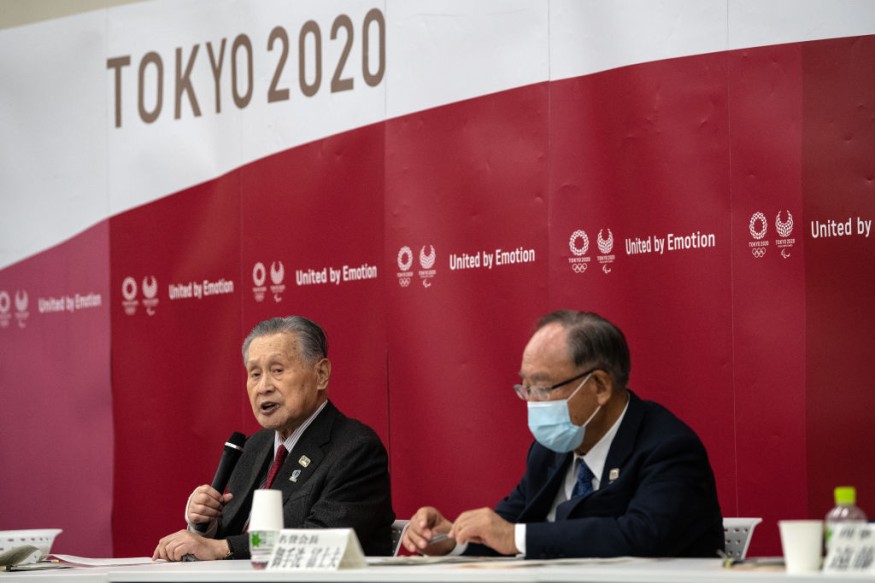
The clock is now ticking fast towards the start of the much-delayed Tokyo Olympics. Monday was marked as the 200th day before the launch of the most awaited Olympics that is only held every four years.
The 2020 Olympics was supposed to be held from July 22 to August 9, 2020, but it was postponed later this year because of the COVID-19 pandemic.
The start of the countdown for the big sports event coincided with Japanese Prime Minister Yoshihide Suga's announcement that he would gather Japan in an urgent plan regarding the COVID-19.
His declaration of the state of emergency in the region will be implemented as Tokyo, and near prefectures recorded high COVID-19 cases.
Yuriko Koike, the Governor of Tokyo, detected the sudden rise of the new cases that already reached 1,337 during New Year's Eve. The governors of Chiba, Kanagawa, and Saitama prefectures helped Koike call the Japanese government for an emergency. The findings resulted in a 400-case jump in just a matter of days.
In the middle of the pandemic, Japan was balancing the economy and health concerns with regards to COVID-19.
While the deadline is nearing, the Tokyo Olympic organizer, together with the International Olympics Committee, was still discussing how to make the Olympics possible with the Japanese government's help. The backlash of the pandemic was experienced through several delays, the shift from face-to-face to virtual meetings, and a series of local protocols for the people's safety.
At the start of 2021, it is expected that the officials will reveal their plans for the upcoming Tokyo Olympics. It will cover the acquisition of 15,000 athletes who will participate in the Olympics. The plan will also involve the safety priority of the athletes, fans, judges, media, and other participants of the said event.
At the start of the year, PM Suga favored the hosting of the country. Suga, who succeeded former Prime Minister Shinzo Abe, vowed to spearhead the Olympics. According to him, the Olympics' launching will symbolize the people's resiliency in overcoming the COVID-19 pandemic.
Suga continued that the vaccines' approval will be accelerated so that they can immediately conduct the vaccinations instead of March as early as February.
RELATED ARTICLE: Paris 2024: Breakdancing to Be Launched as Olympic Sport
As of now, Japan has recorded 3,400 plus deaths that were related to COVID-19.
The Olympics' commencement was slowed down when the national broadcaster NHk conducted a poll about its opening. Some 63 percent of the respondents were either in favor of delaying or dropping the Olympics for the people's safety.
For former Prime Minister Yoshiro Mori, who was also the organizing committee president, the Tokyo Olympics should begin between March and May. He agreed to the suspension of the games in the meantime, according to the Nikkan Sports newspaper.
"The final deadline for a decision would be May, but it may come sooner," Mori said.
If the Olympics misses many spectators, the budget of the tickets amounting to $800 million will burden the organizers and the officials.
Due to the COVID-19 fiasco, the budget for the Tokyo Olympics was increased to $2.8 billion for a total of $15.4 billion.
However, many government officials said that the audit yielded about $25 billion. Only $6.7 billion of the allotted budget came from the public.
To minimize the COVID-19 exposure, Mori proposed a shortened ceremony for the official opening. He also suggested that the parade should only include select officials.
Some 73 percent of the income of the International Olympic Committee will come from broadcast rights.
Toyota and Coca-Cola are the main sponsors of the Olympics.
March 25 will be the date of the torch relay for the event's formal opening.
READ MORE ON SWN:
Top 10 Outstanding F1 Races in History
Top 10 Facts in Sports That Will Shock You
MLB Umpire Among 14 People Arrested for Human Trafficking in Ohio
© Copyright 2025 Sports World News, All rights reserved. Do not reproduce without permission.










